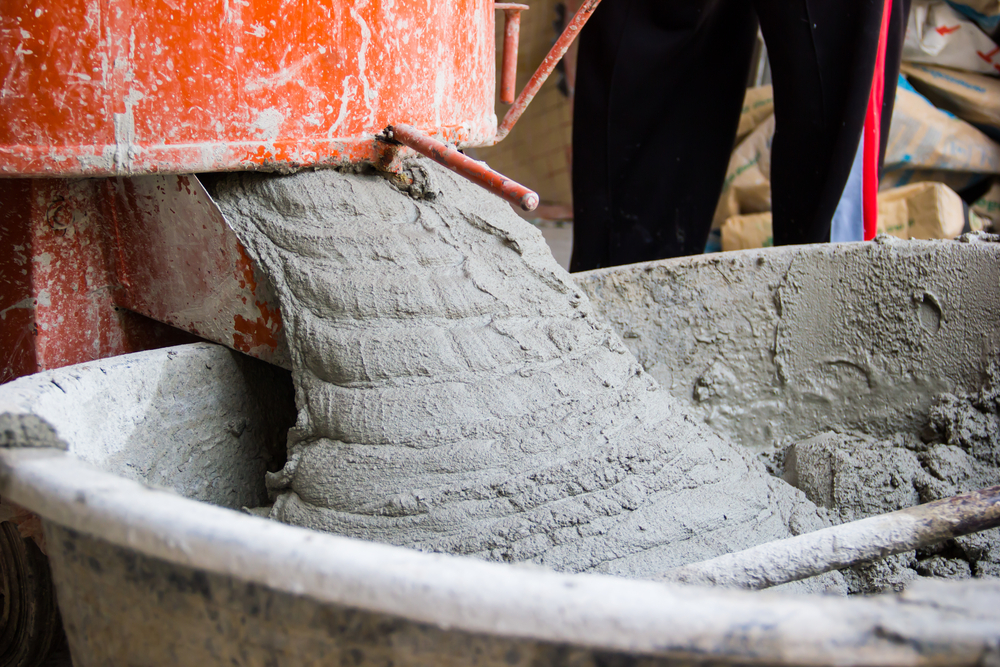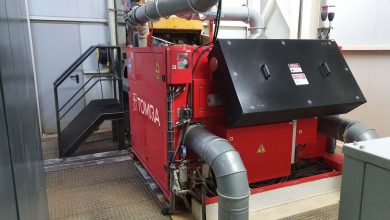More construction industry failures expected as Cement & Concrete SA closes

Cement & Concrete SA (CCSA), an organisation initially established 86 years ago as the Concrete Association of South Africa, has closed its doors after the four major domestic cement producers withdrew their funding.
Quantum Readymix Concrete MD Calvin Billett said the closure is a sad day for SA because it effectively closes the door of an industry watchdog that was impartial and ensured that standards were maintained.
Billett said the whole of South African society will undoubtedly be the losers as, among many other negatives, there will be more structural failures in the country.
However, it has emerged that important industry players are in discussions to establish a new industry body that will specifically address the key challenges that have persistently impacted the cement industry, including the imported dumping of cement. This role was previously performed by CCSA and its predecessors.
A statement issued about the CCSA’s closure said the reason for taking this step is that the cost of running the organisation has become unaffordable, in the wake of the broader construction industry facing challenges for several years due to a significant reduction in infrastructure investment in SA.
The statement added that a final attempt was made in March 2021 to strengthen the various industry bodies within the sector by consolidating what was then known as The Concrete Institute (TCI) with the Concrete Society of Southern Africa (CCSA) and the Association of Cementitious Material Producers (ACMP) into what became known as Cement & Concrete SA.
“Having consolidated the industry bodies after the Covid-19 pandemic in 2020, it was anticipated that running CCSA would be much more affordable.
“The unforeseen and continued lack of investment in infrastructure in our country unfortunately put further strain on the cement industry, hence the decision to wind-down CCSA with effect from 1 April 2024,” it said.
Perrie said the CCSA closed on 1 April 2024 but referred a question on what ultimately caused the closure of the organisation to the four cement producers who funded the CCSA.
“They provided the bulk of the funding. We did have individual membership and some corporate memberships, which brought in a small amount, but [by] far the biggest chunk – the difference between our income and expenditure – was funded by the four producers equally,” he said.
Perrie said 16 employees at the CCSA will be retrenched as a result of the decision.
PPC CEO Matias Cardarelli confirmed that PPC, along with other major cement producers, will exit CCSA.
He said key players in the industry are in discussions to establish a new industry body that will specifically address the key challenges that have persistently impacted the cement industry.
Cement dumping
“These challenges include issues such as imported dumping of cement resulting in unfair competition, low-quality cement standards produced by blenders posing a public safety risk, the impact of carbon taxes on local clinker producers, as well as finding more efficient ways of working with Eskom and Transnet.
“We understand the importance of working collaboratively to address these pressing issues, and we are committed to finding sustainable solutions that will benefit the industry and the country as a whole,” added Cardarelli.
“We look forward to engaging in constructive dialogue with all stakeholders to pave the way for a stronger and more resilient cement industry in South Africa,” he said.
Richard Tomes, a CCSA board member and the sales and marketing executive of Afrisam, referred Moneyweb to the statement released about the organisation’s closure.
However, Tomes confirmed cement producers are currently working on a plan to establish a new industry body that will continue some of the processes previously undertaken by CCSA, including engaging with the International Trade Administration Commission (Itac) on imported dumped cement and tariff protection for the domestic industry.
Afrimat financial director Pieter de Wit said they only took ownership of Lafarge South Africa’s operations on 23 April 2024, and it is still a bit early for them to comment on this issue.
“What we do understand from the decision to close down the organisation is that it was apparently a cost saving decision as the membership fees were predominantly paid by four cement companies,” he said.
Attempts to obtain comment from Sephaku Cement were unsuccessful.
Rebuilding capacity
Meanwhile, Billett stressed that there is a need to build more vital capacity and the cement companies have a role to play in this endeavour.
“We certainly should not be destroying our educational and training institutions that have served us so well. Such institutions are irreplaceable and once gone it will take an enormous effort to rebuild it to its current capacity if ever,” he said.
He added that the CCSA had a world-class library, and the entire institution was at one time also world-class. Billett stressed the importance of this in the context that the SA Bureau of Standards (SABS) and Council for Scientific and Industrial Research “are not what they used to be”.
Perrie said they are still trying to see if some of the CCSA staff would like to carry on with the training that was offered and are looking at where they can move the library, with one of the universities a possibility. But he added that none of these issues have been decided.
Billett said the construction industry at large uses cement that complies with an irrelevant international specification and, as such users are dependent on the integrity of a cement chief executive to address cement complaints, which does happen from time to time.
He said CCSA and its predecessor, the Cement & Concrete Institute, were involved in the unbiased testing and competent resolution of all issues where cement has been used and constantly called out to resolve concrete-related issues on site.
“They will give you an unbiased analysis, not one that absolves the cement company as the cement met with the requirements of an irrelevant specification,” he said.
Billett claimed that cement CEOs are now being appointed on a short-term contractual basis and have no long-term interest in the South African construction industry.
He bemoaned that, as such, these CEOs “will do what is best suited for their own pocket before considering the interests of the company or construction industry because most often their remuneration is linked to the company’s share price, as are their bonuses”.
Billett added that most cement companies in SA are owned or managed by foreigners or owners with only a short-term vision and whose priorities lie elsewhere.
“We should not allow such people to dictate and undermine what is clearly not in South Africa’s long-term interest,” he said.








